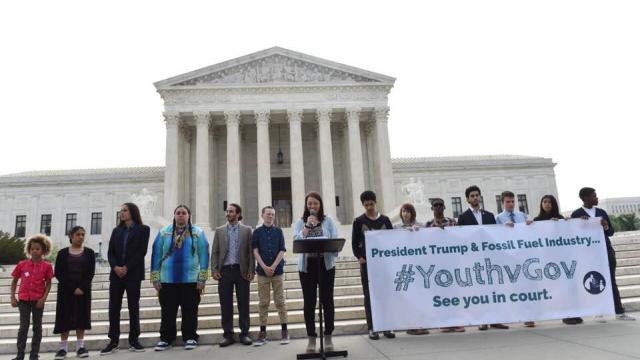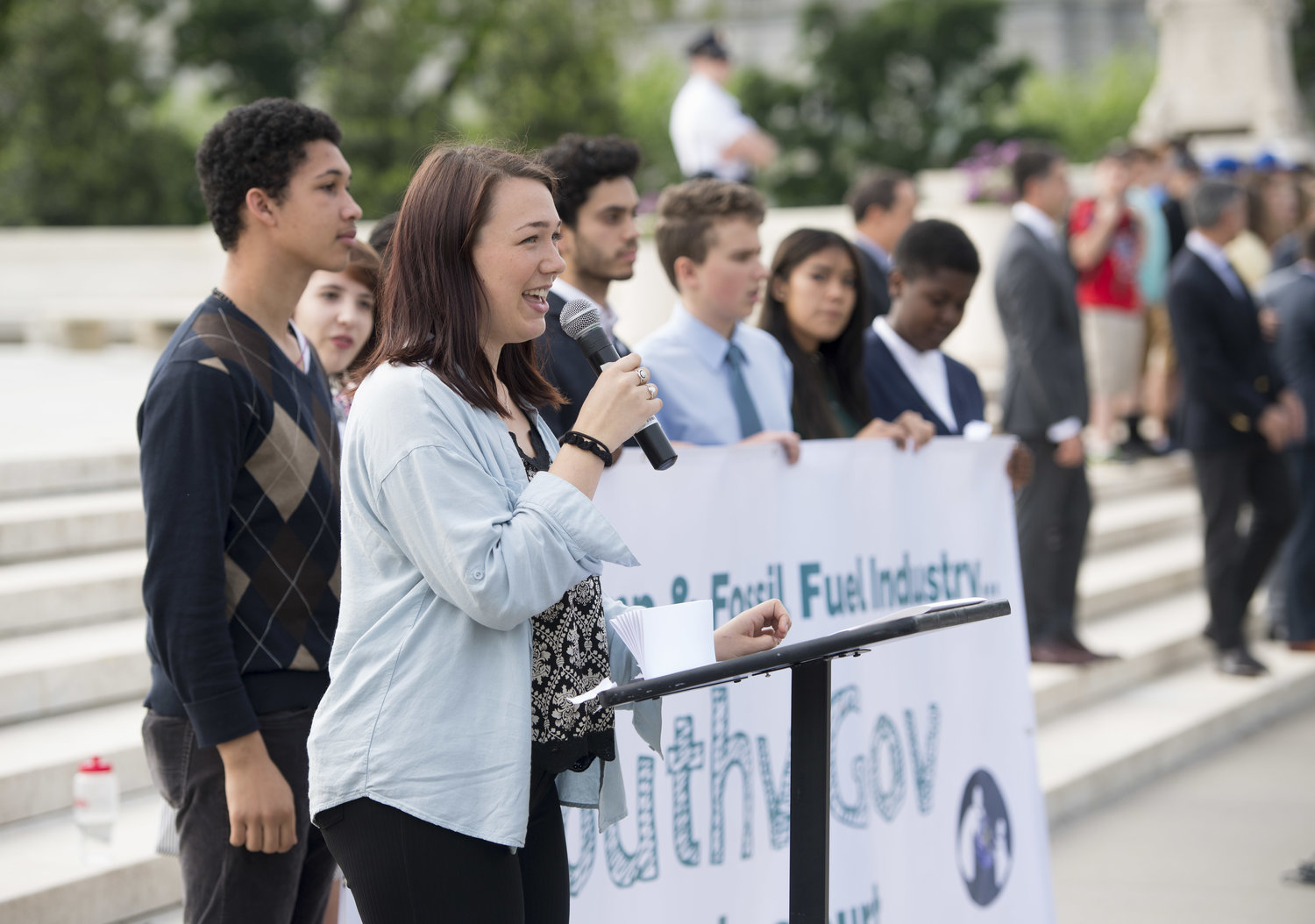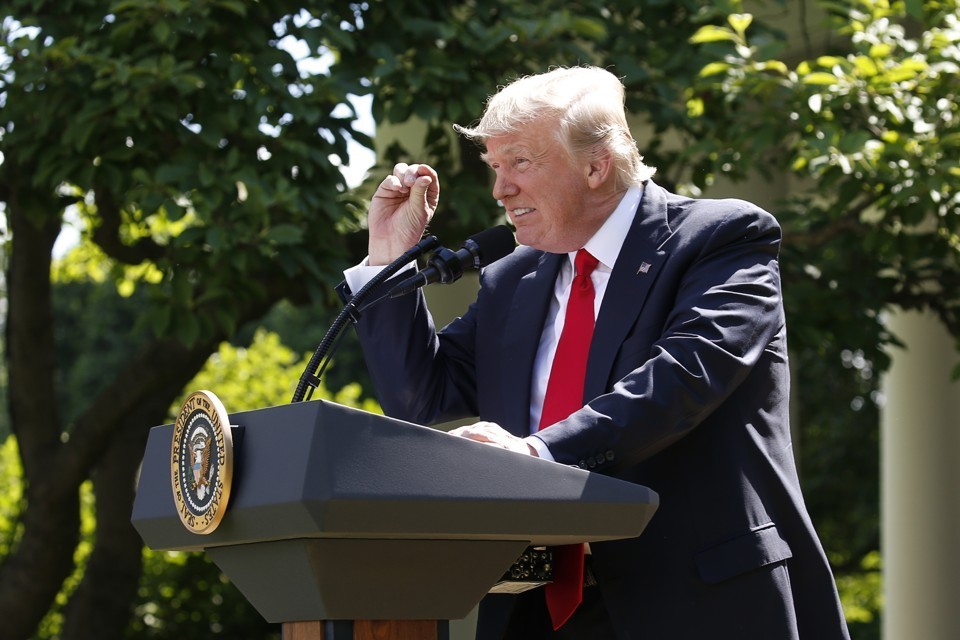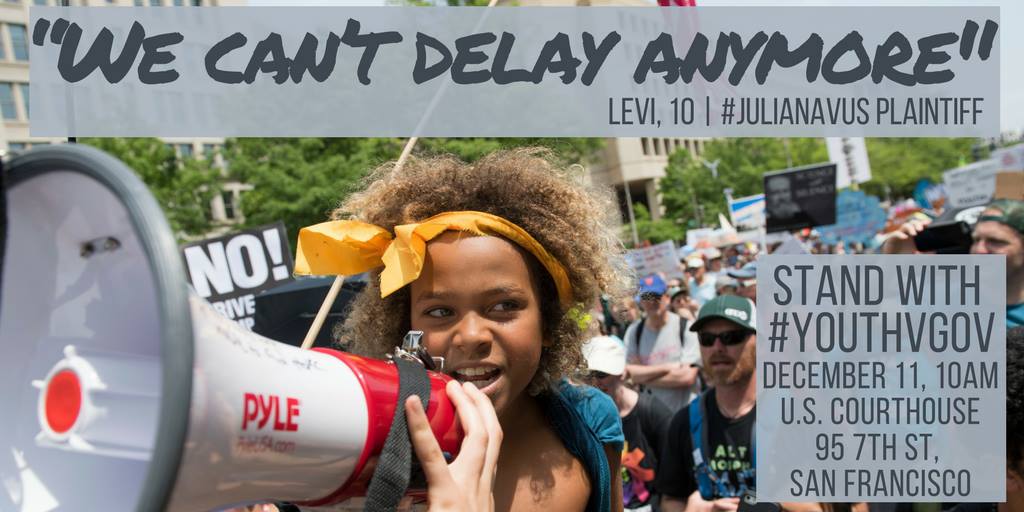
In the words of environmentalist Wendell Berry, “A man knows the world is not given by his fathers, but borrowed from his children.”
Do children have a fundamental constitutional right to a clean, liveable planet? According to the youth plaintiffs in the landmark case Juliana v. United States, they do. And to ensure that their children, grandchildren and subsequent generations inherit a planet that is indeed livable, guaranteeing a reasonable quality of life and health, the plaintiffs are suing the U.S. government.
From its onset the case was considered a long shot. Nonetheless, the 21 young plaintiffs who initiated Juliana are now finding themselves on the U.S. Ninth Circuit court. On Dec. 11, Kelsey Juliana and her fellow plaintiffs will be taxed with convincing that court's judges, in San Francisco, that their case must go to trial before the U.S. Supreme Court as a matter of national urgency.
In a political environment where all matters of climate change have been summarily dismissed by the Trump administration, many feel the case has the potential to reach the highest court. Such a result would be historic, forcing the issue of climate change into the national consciousness in a new way – and, potentially, putting the responsibility for action on climate change squarely on the shoulders of the federal government.
A Brief History of Juliana
Trump's legal team has already taken action to try to crush the Juliana case in its infancy. In June, the administration filed an extraordinary mandamus petition requesting the court to revisit Judge Ann Aiken's denial of the White House's motion to dismiss the case.
According to the Trump administration, the case could cause irreparable harm by forcing the White House to participate in the pre-trial discovery process. The claim is facetious, given the extraordinary wealth and access to legal representation the administration possesses. The overwhelming majority, around 97 percent, of U.S. and global scientists believe climate change is real and will lead to environmental catastrophe – if not in this generation, then the next – if extraordinary action is not taken.
Should the court decide on Dec. 11 that the youths' argument in Juliana has merit, the next stage would be to proceed to trial. There, should the plaintiffs prevail, the Trump administration's only recourse is to appeal the decision, forcing it to the nation's highest court.
The Importance of Juliana to Future Generations
There is little doubt that the Trump administration, on its current course, will continue to make catastrophic decisions that lead to lasting and irreversible climate change. Most symbolically, Trump announced the U.S. would withdraw from the historic Paris Agreement, making the U.S. the only remaining nation on Earth to reject the climate accord after Syria agreed to sign on to it last month.
Against all economic evidence, Trump continues to claim that a return to fossil fuels, specifically coal, will bring back jobs. His approach ignores not only the reality of climate science, which tells us definitively that burning fossil fuels is heating up our planet, but also a basic economic fact: Vastly more high-paying jobs will be created in the burgeoning green energy sector than any attempts to resuscitate the dying fossil fuel industry.
In any event, should climate change continue unchecked, the problem of job creation will become obsolete. In fact, most of our modern-day problems will. Those who don’t immediately perish as ocean levels rise and hurricanes, typhoons, droughts and wildfires consume larger parts of the earth will be concerned with survival, not jobs.
The plaintiffs in Juliana seek to hold the federal government responsible for not only its negligence to act on climate change, but for its affirmative actions in creating global warming and knowingly exacerbating the climate crisis. The youth plaintiffs seek to hold their government responsible for the coming global catastrophe that it is failing to prevent, and which will most harshly impact theirs and future generations.
In the case, the plaintiffs claim the right to a liveable planet as a fundamental, constitutional right. To date, Judge Aiken agrees, stating, “I have no doubt that the right to a climate system capable of sustaining human life is fundamental to a free and ordered society.” The plaintiffs claim the federal government's actions constitute a direct infringement on their right to life, liberty and property, as well as a violation of the public trust.
When the government infringes upon a fundamental right, the court applies strict scrutiny to the case. The idea of substantive due process forbids the government from impinging on fundamental rights. While this is the case for present plaintiffs, whether the court extends that strict scrutiny to future generations remains to be seen in Juliana.
For that to happen, the plaintiffs will need to establish the following:
• That the government's acts created the danger to the plaintiffs.
• That the government knew its acts caused that threat.
• That the government acted with deliberate indifference to the harm.
Should the plaintiffs prevail, the Trump administration may be ultimately forced to act to address climate change. Though the strategy employed in Juliana may seem extreme to some, the irreparable harm that will come to millions should the government fail to act provides a clear, convincing reason to do so.
3 WAYS TO SHOW YOUR SUPPORT
- Log in to post comments



















